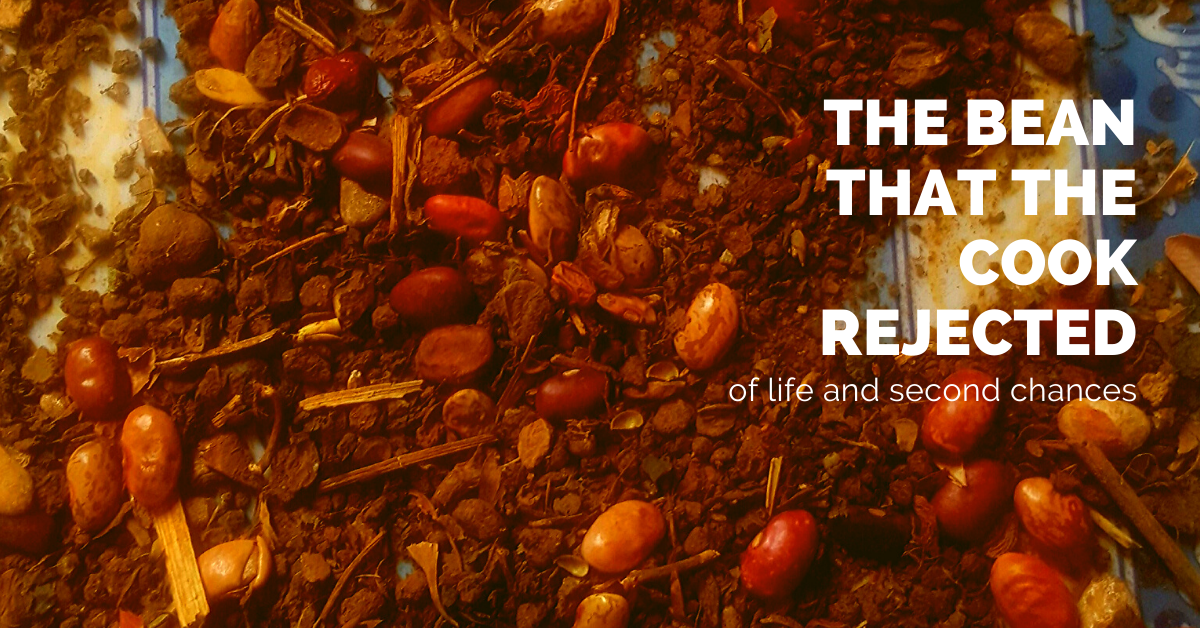Guka Bainito words of wisdom tell of the importance of a special area in a Maragoli home, chandangu, to the spirit of the home. As always, he also blesses us with snippets of sneaky wisdom.
Many of you consider sprouted beans as ‘having gone bad’. At best, you’ll toy briefly whether they are any good for eating, before quickly tossing them into the bin. This is true especially for you town folk. Into the bin they go together with soiled disposable diapers and food scraps. For us here in the village, with my own eyes I’ve seen my own clueless grandchildren toss sprouted beans out to live among the bananas growing in the backyard of their grandmother’s house.
A woman’s peace
When I speak of backyard, I talk of that area at the back of the house that’s sacred to a woman who has her kesegese. Often, its an area under the shade of banana plants growing in the said woman’s kitchen garden. She tends to this area by sweeping it often, for she spends most of her married life there undertaking wifely/motherly duties. Including picking beans, preparing traditional vegetables that kind of thing.
Chandangu is the Kimaragoli name given to this heaven the woman of the house escapes to when she needs to get away from her man. Most of the time though, it’s just the place she goes to get away from smoke emanating from mashiga as she ensures there’s a hot plate for her family. In Lulogooli when your father asks for your mother and she’s at the back, you answer: “Mama ave mu chandangu.”
Maganda mu chandangu
So it happens that a favorite pass time mu chandangu is sorting out beans after harvesting, thrashing and winnowing. The way I have seen it done all my life is this way. The beans, maganda, are sorted three ways. First the good produce is set aside. Then the sprouted/ ‘grade II’ beans that are good for making muduya. Finally the leftovers – the discolored, disheveled, distorted and discarded lot find themselves among the bananas.
It is this last bunch that I want you to think of. When and as they are thrown out, they are the wretched of the earth. They are of no use whatsoever. Little thought is even given to where they eventually land. Do they remain stuck in the foliage mu chandangu? Or do they find a nesting in the ground.
But as it always is with such things, it happens that the conditions are just right for new life: warmth, wetness and air. And then, from their dejection they sprout. An off chance of rain and before you know it, the person who threw the beans out a week or two earlier is raising hell.
Whose chickens are these that are feeding on my beans! Child so and so, go tell our neighbor to please not let her chicken roam around, for they are destroying my bean crop!
This life! Blessings to you children of my children, in the form of rebirths and second chances.
Subscribe to Mulembe Weekly
Get culture, language, stories and discussions in your inbox every Friday 5 PM East Africa Time

